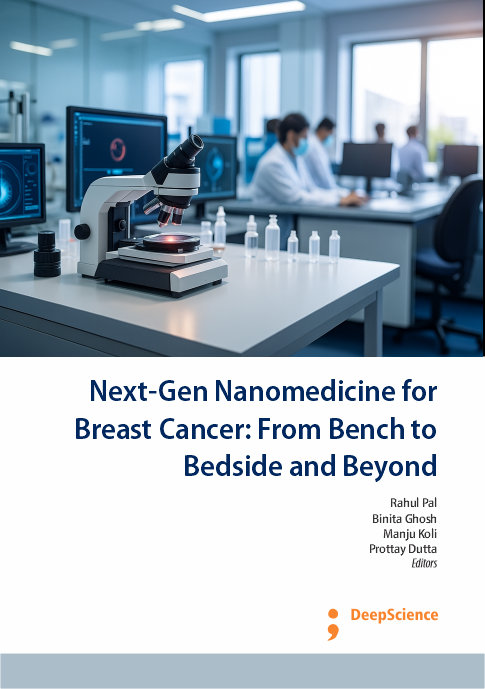Artificial Intelligence and Machine Learning in Nano-Based Breast Cancer Therapeutics
Synopsis
Breast cancer is still one of the most common reasons why women die or get sick around the world. This means that we need new ways to find it early, make sure the diagnosis is correct, and treat it well. Nanotechnology, artificial intelligence (AI), and machine learning (ML) have come together to create new ways to treat breast cancer. Nanoparticles make it easier to deliver drugs to specific areas, increase bioavailability, and lower systemic toxicity. AI/ML methods, on the other hand, provide predictive modelling, real-time data analysis, and personalised treatment plans. This chapter looks at how AI-driven algorithms can work together to improve nanoparticle design, predict nanotoxicity, and make drug delivery to tumours more effective by using the enhanced permeability and retention (EPR) effect. It also looks at how deep learning, reinforcement learning, and synthetic data generation can be used to diagnose, predict, and keep an eye on cancer treatment. Nanomedicine powered by AI could get around tumour heterogeneity, drug resistance, and ineffective treatments by combining data from clinical datasets, molecular profiling, and computational models. This chapter talks about new developments, big problems, and where AI-guided nano-based breast cancer treatment is going in the future. It also talks about how this could change precision oncology.













